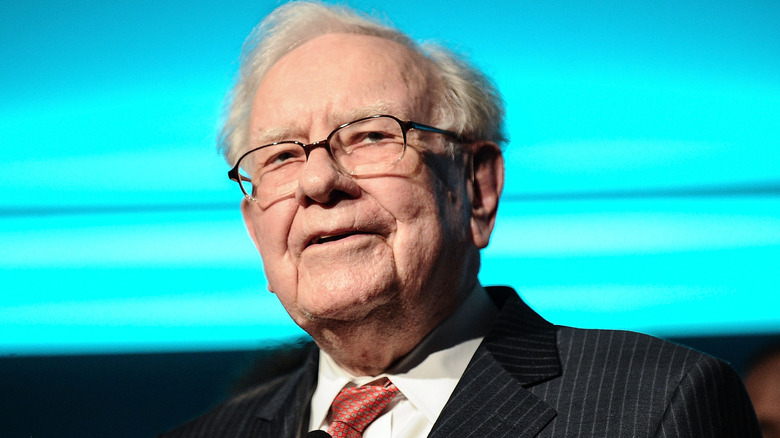This Warren Buffet Quote Is Really Just A Retirement Warning In Disguise
When the Oracle of Omaha speaks, you better listen -– especially if you want to grow and protect your retirement savings. In Berkshire Hathaway's 2004 Annual Report, Warren Buffett offered some valuable advice for shareholders: "be fearful when others are greedy and greedy only when others are fearful." While, at first glance this might come across as a quirky investment slogan, it can also be seen as a retirement warning in disguise.
When you invest your retirement savings in the stock market, remember Buffett's warning against following the crowd and making decisions that you might regret later. As retirees, it's especially important to avoid mistakes when the markets are booming — even is everyone around you is overpaying in an effort to not miss out. However, once the market evens, or even bottoms, out and fear takes over, many of those same fad-chasing investors are likely to sell at lower prices. This is the perfect opportunity to be "greedy," and buy shares. In a 2008 op-ed for the New York Times, Buffett repeated the same piece of advice, calling it a "simple rule" that underlies his investment philosophy. This simple rule can help you avoid emotional decisions that might threaten the retirement savings you have built up over decades.
Why Buffett's advice matters even more in retirement
While Buffett's advice is applicable to investors of all ages, it is particularly relevant to retirees because of the limited opportunities to earn money back if its lost. During your working years, a stock market downturn can generally be seen as more temporary hiccup. When the market picks up again you are likely to recover any losses — as long as you keep making regular contributions and benefit from long-term growth. However, once you retire and begin withdrawing money from your investments, you are probably not adding new funds (or at least not at the same level). This means a market downturn can have a more serious impact on your bottom line.
Retirees are also especially vulnerable to something known as the sequence-of-returns risk. This refers to the risk of a market downturn during or soon after you enter retirement, which negatively impacts your portfolio and leads to losses that are harder to recover. The sequence or order in which you get bad market returns can determine just how long your retirement savings last — with concern over retirement funds running out being a major concern for many Americans. Given the heightened risks you face as a retiree, Buffett's advice about timely restraint while trading stocks can be even more crucial. With that said, if the stock market still feels like too big of a risk, you can also consider lower risk investment opportunities such as annuities, REITs, and municipal bonds.

